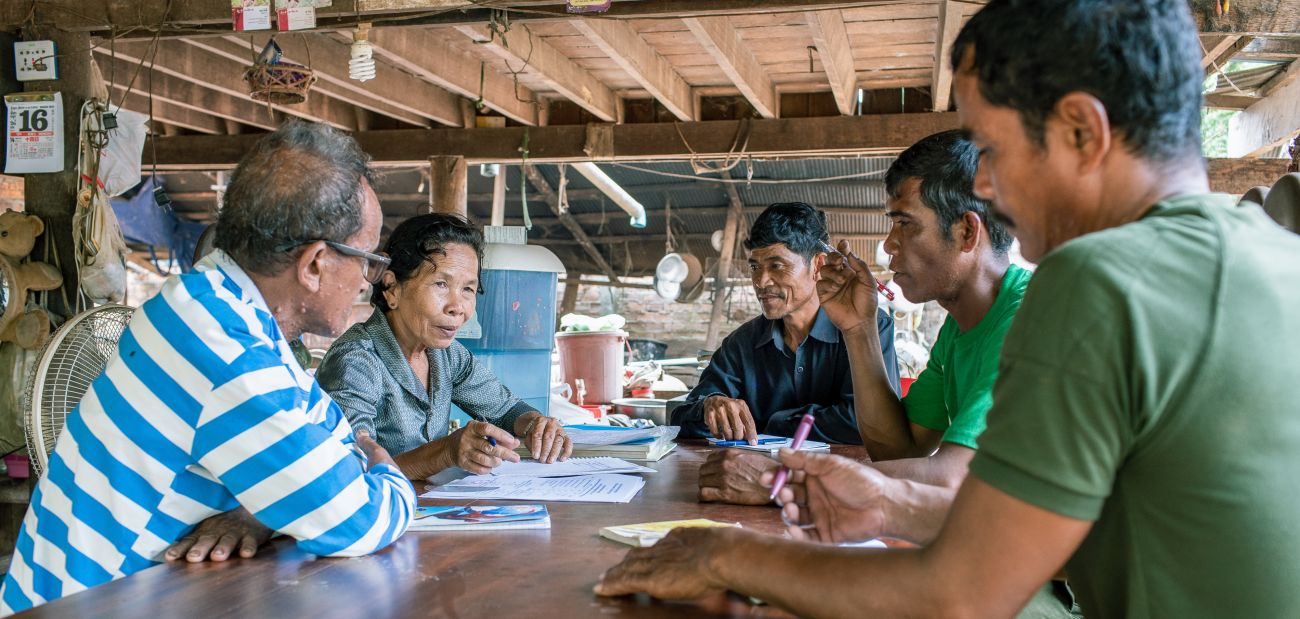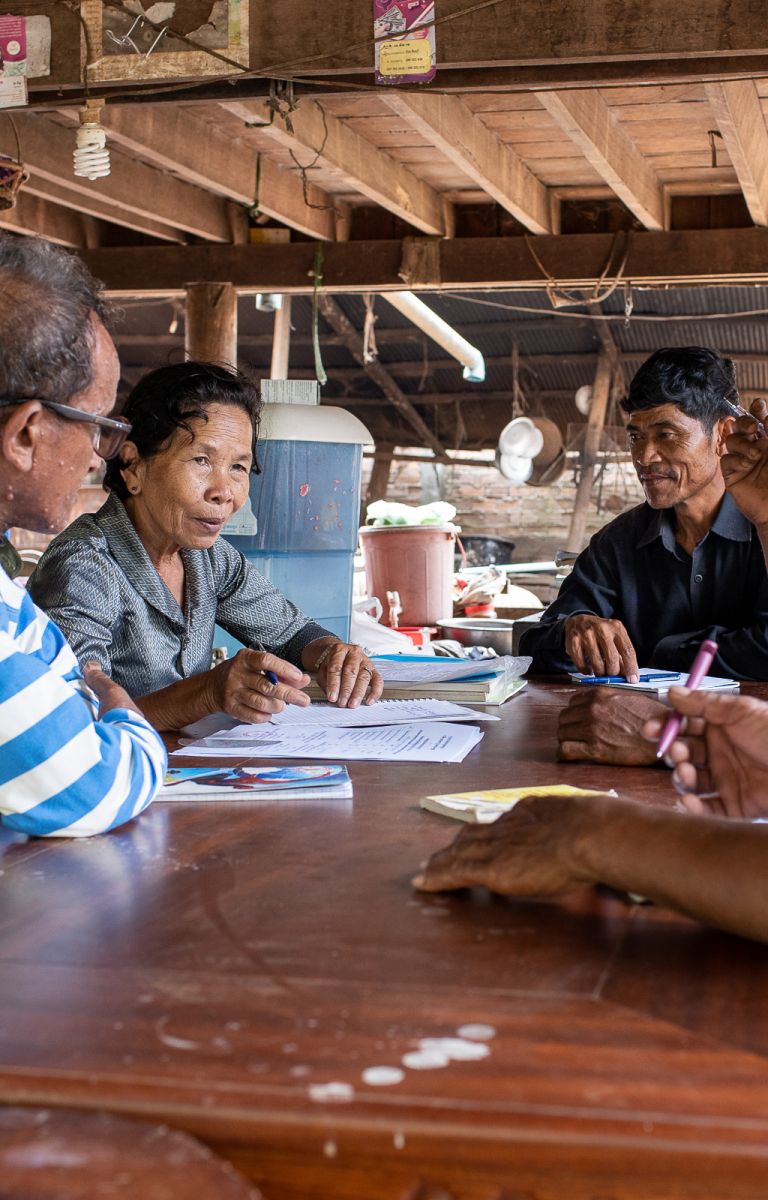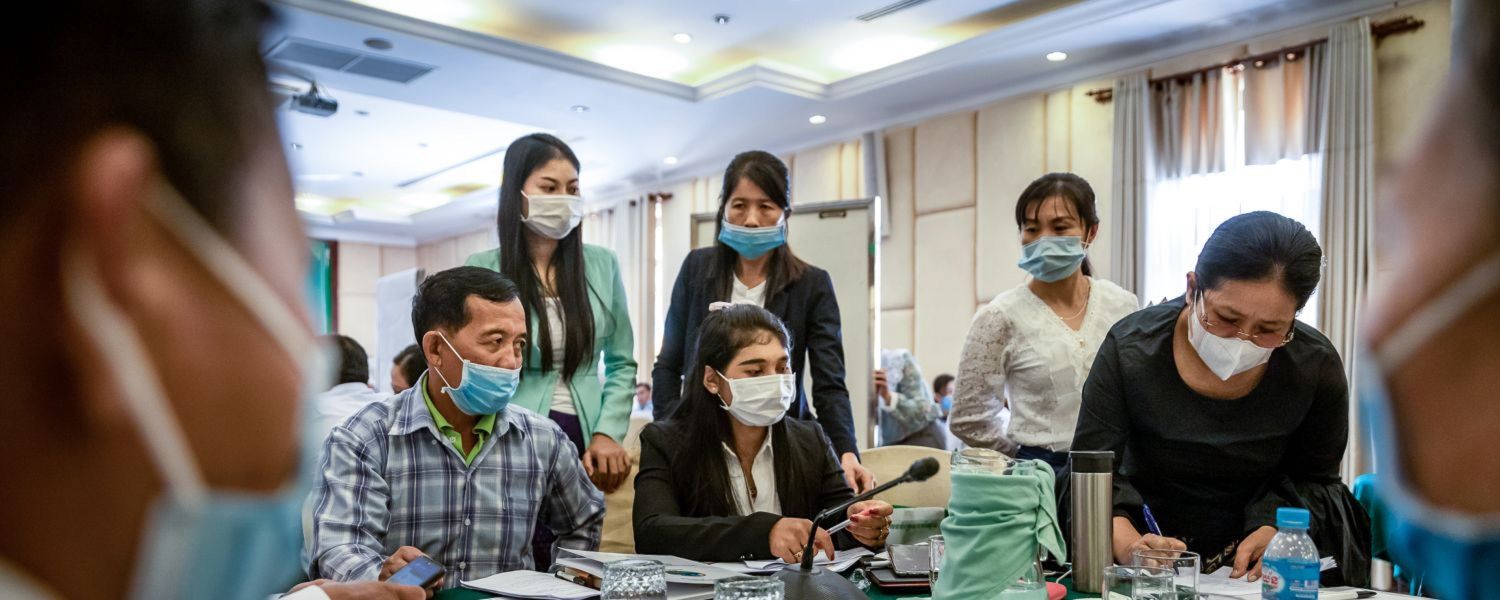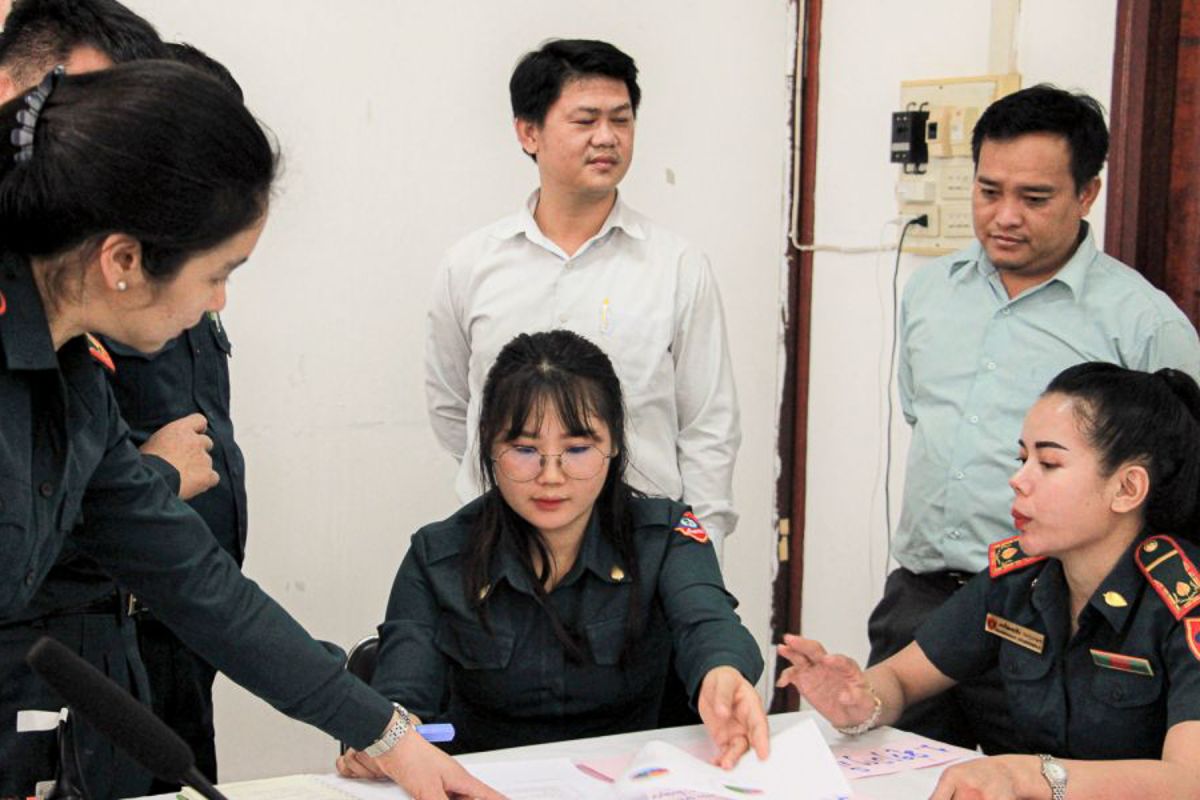

When forester Vong Sophana began working for Cambodia’s Forestry Administration in the early 1990s, she expected to be spending time in forests. But her male colleagues thought that would be too dangerous for a woman, so she was stuck for years in the office.
“I liked nature, and I wanted to work outdoors where I could meet different people and learn from them,” Vong says about her desire to work in forestry. “But at the time, there was fighting still going on, and my male colleagues thought it was too dangerous. There were land mines in there, too.”
Today, Vong is the Forestry Administration’s Deputy Director-General, and she is working to prevent such biases from holding other women back. She is one of 30 professionals from seven countries that RECOFTC has supported since 2019 through its Weaving Leadership for Gender Equality (WAVES) initiative, which the Swedish International Development Cooperation Agency has funded. In February 2021, these leaders met to reflect on their achievements, share lessons and chart ways forward. Their discussions revealed an array of strategies they are using to promote gender equality in the forestry sector of their countries.
Forests are crucial to millions of women across Asia. They harvest forest products, and they manage forest resources, including the planting, patrolling and protecting of local forests. Yet, their views regarding the forests are often not heard. This is partly because of a misconception that forestry is a male domain and because many women lack confidence to speak up in discussions that men tend to dominate.
"We want women to be able to share their experiences without fear and to increase their capacity to encourage other women to lead,” says RECOFTC Cambodia Director Hou Kalyan. “We also want to shift the mindset of their male counterparts so they accept the important role women can play in forest management."
WAVES does this by supporting a network of gender equality champions in Cambodia, Indonesia, Lao PDR, Nepal, Thailand and Viet Nam. These women and men include government officials, politicians, academics, directors of civil society organizations and business managers. WAVES offers training, technical assistance and funding for projects that these leaders want to develop to ensure women can participate more equally with men in making decisions about forests.

Empowering gender champions in Indonesia
WAVES-supported leaders in Indonesia include Kusdamayanti, who heads the Ministry of Environment and Forestry’s Center of Environment and Forestry Human Resources Education and Training in Bogor District. She has developed a training curriculum on gender mainstreaming and has inspired other units in the Ministry to become gender-sensitive.
Another WAVES leader, Mardha Tillah, encouraged her colleagues at the RMI-Indonesian Institute for Forest and Environment to formalize a long-neglected gender policy. They audited their programs and their monitoring and evaluation tools for gender-sensitivity. Among other things, this resulted in new guidelines specifying that field teams have one male and one female facilitator and that female facilitators lead women-only group discussions.

Although I am the director of my organization, I was constantly worried about other people’s opinions about my decisions and felt unsure and afraid to take action. Now I recognize these shortcomings and am able to better manage them, question the status quo and take calculated risks.
Mardha Tillah
WAVES has also helped Novaty Dungga, a lecturer at the University of Hasanuddin, to encourage administration officials to make courses more inclusive of all faculty members.
“In the future, there will be more academics who understand the importance of providing opportunities for everyone to contribute to development regardless of gender, ethnicity or religion,” she says.
Mainstreaming gender equality in Cambodia
In Cambodia, Vong Sophana has convinced colleagues in the Forestry Administration that gender mainstreaming is as important as reforestation and illegal logging. They have developed a forthcoming strategy that will help ensure that women have greater roles in the management of the country’s forests.
The strategy is the result of two years of training, workshops and consultations with scores of women, as well as men, from communities, civil society groups and the government. It calls for more training to strengthen women’s confidence to contribute to policymaking processes and forest management, such as through community forest credit schemes and the indirect monitoring of illegal logging.
The strategy also requires wider efforts to strengthen the capacities of Forestry Administration staff so they can include gender dimensions in forest extension and monitoring work. And it calls for reforms of legislation and governance structures that disadvantage women.
Policy and institutional reforms in Lao PDR
In Lao PDR, the WAVES initiative is helping women and men working in government departments or civil society groups to lead on gender mainstreaming. Among other things, this is improving implementation of existing gender policies and creating new opportunities for women in the forest sector.

For example, training provided by WAVES has supported decision-makers in the Department of Forestry and the Department of Forest Inspection to enhance the gender equality provisions within the country’s Forest Strategy to 2035. As gender equality gains prominence in the sector, more women feel encouraged to participate in the technical work of forestry agencies.
“I am very proud of my capacity and self-confidence to speak out about the needs for gender equity,” says Yommala Phaengsouvan, a WAVES leader in the Department of Forestry. “I am applying my skills to integrate gender equity in a new flagship project for the Ministry of Agriculture and Forestry.”
Manilay Thiphalansy, a former program officer at RECOFTC Lao PDR, supported the WAVES leaders to apply their new knowledge and overcome the challenges they face.
“They have made outstanding progress in just a few short years,” she says. “I can only imagine where the next few years will take them.”
